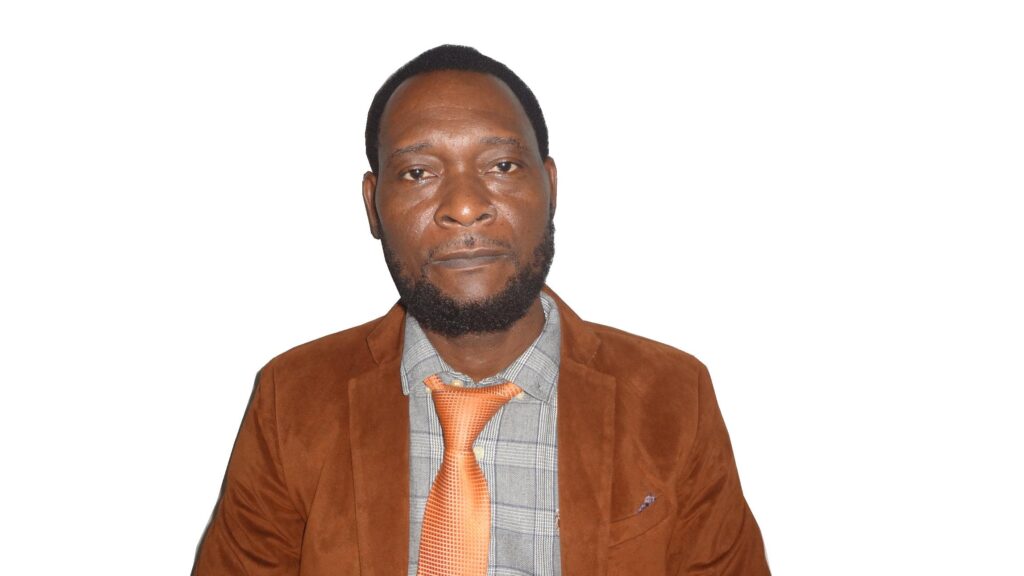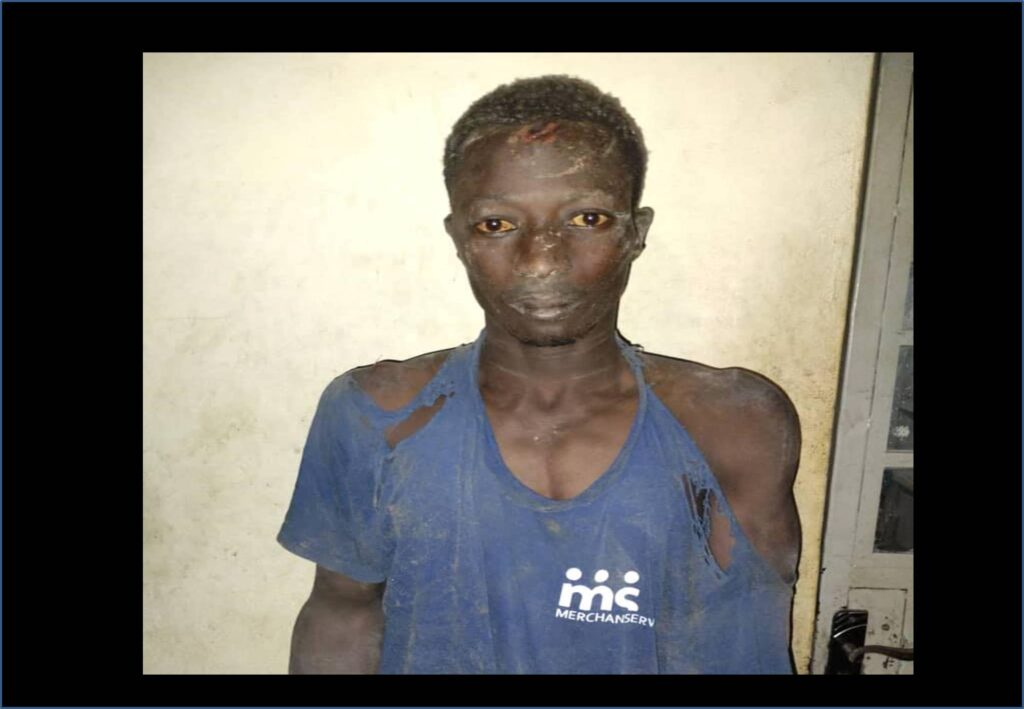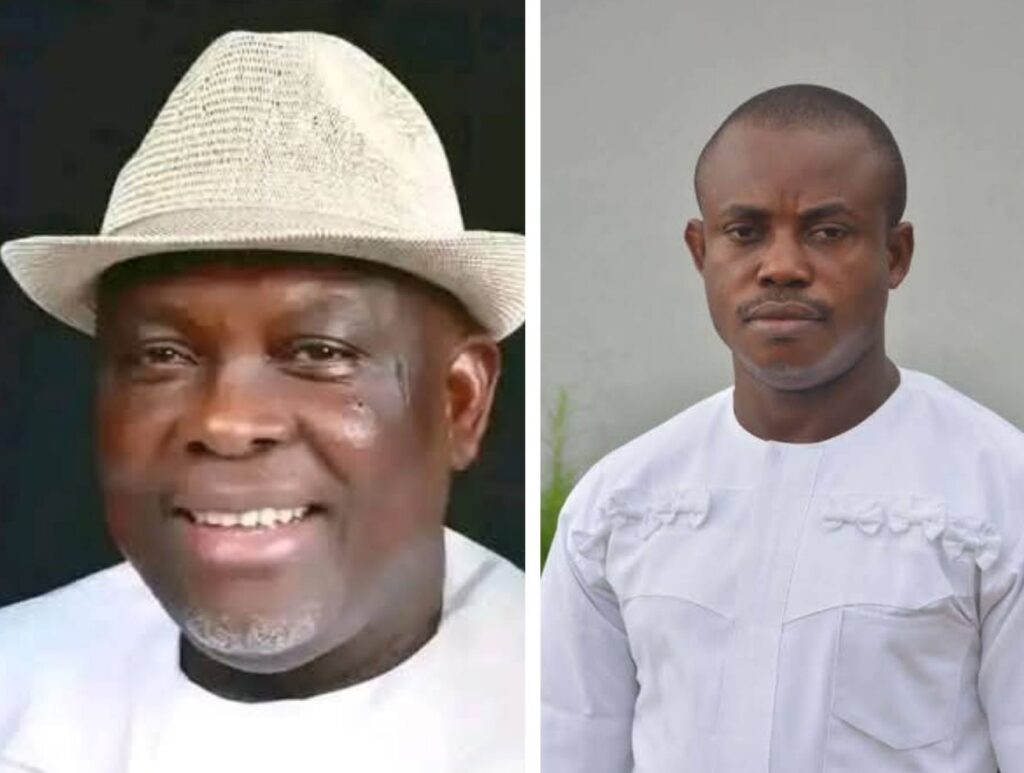GistNexus – April 13, 2025.
Ijebu Ode residents in Ogun State woke up to the startling and foreboding news on Saturday morning that a man had died under mysterious circumstances while allegedly attempting to steal a sacred statue of the Agemo god.
The incident, which happened at the Mafowoku Roundabout near Folagbade Road, left people surprised and raised concerns about respect for traditional symbols, spiritual consequences, and rising social vices among the people.
The Mysterious Death Near a Fallen Deity
The dead body of the man, who was not identified at first, was found beside the pieces of the Agemo statue, a golden statue that had been upright for over two decades. The statue, according to witnesses, seemed to have been ripped off its foundation, and the suspect who is believed to have committed the act was lying motionless on the ground.
More Related News
A recently viral video, taken in seconds after the attack, discovers the man lying in a blue top, inches shy of the toppled statue, his body still and unresponsive. He appeared to have been knocked down in the process—imbuing religious connotation to what might otherwise be seen as a failed burglary.
Community in Disbelief as Sacred Symbol is Desecrated
In the view of the residents, the statue was not just a public work of art, but a very symbolic representation of the Agemo deity—a spiritual entity revered in the Ijebu traditional cultural heritage. The Agemo cult, which has been historically involved in spiritual purification and protection of the Ijebu kingdom, is a sacred institution, and any desecration of its symbols is typically regarded as sacrilegious.
Hakeem Quadri, a longtime resident of the community and also an eyewitness of the aftermath, corroborated the incident to GistNexus.
>”The incident is real; it happened right before my house,” Quadri described. “Everyone heard sounds of people, and when I went outside, I saw that the Agemo statue, which was commissioned about 21 years ago, had been removed. The person who was thought to have masterminded this act of sacrilege had been knocked unconscious.”.
Quadri also stated that the body of the deceased had also been brought to a mortuary as at when he was giving the statement.
Identified as Jeremiah Nwoke: What We Know So Far
Subsequent investigations identified the victim as one Jeremiah Nwoke. While information on his background is still scant, reports have it that he had made a number of failed attempts to dislodge the statue before finally succeeding in knocking it off. His pursuit, however, ended tragically shortly after.
More Related News
Eyewitness account and community rumor suggest that Jeremiah was perhaps alone during the act, although the authorities have not yet turned it into fact as to whether he did it alone or in collaboration with other people. No one actually knows what his motivation was, though theft is the most widely accepted reason.
A Heavily Padded Statue and a Fatal Effort
Described by locals as “heavily padded,” the Agemo statue was anything but an easily manipulated object. Over twenty years ago, mounted, the statue was not only intended to represent a revered cultural symbol but was also constructed to endure, with the statue having been commissioned using long-lasting materials and carefully pieced together to withstand harsh environmental conditions.
Witnesses report Jeremiah Nwoke struggled valiantly to pull the statue down, attempting multiple times before finally succeeding in dislodging it. Having allegedly pulled the figure off its pedestal, he collapsed and died shortly afterwards. Whether due to exhaustion, divine wrath, or some other as-yet-unknown reason is a topic of both community speculation and official investigation.
A Viral Video Sparks Conversations Nationwide
The incident has since been posted on social media, and the video has gone viral, with Nigerians reacting very strongly to the incident. Most of the viewers have been shocked, while others have blamed Jeremiah’s premature death on spiritual revenge.
> “How can someone even think about stealing a statue of a god? That is not theft—it’s blasphemy,” wrote one social media commentator.
Another user commented, “We are modernizing, but spiritual forces are still a reality in our societies. This is a warning.”
While others have dismissed the event as being coincidental or due to a medical condition, others are resolute in their conviction that Jeremiah’s death was a direct consequence of his action against a revered figure.
Authorities Still to Make Official Statement
As of the time of submitting this report, the local officials have not made an official statement regarding the issue. The Ogun State Police Command has given no confirmation of the identity of the deceased person nor any preliminary findings regarding the cause of death.
But according to insiders, the body was removed by first responders and stored in a mortuary in town until further inspection. It still needs to be confirmed whether the body will be subjected to autopsy in order to confirm the reason behind the death.
Cultural Implications and Public Outrage
The vandalism of the Agemo statue has generated entrenched emotional responses among the people and far beyond. Many residents have responded with anger, not only to the robbery, but to what they consider a desecration of a highly regarded cultural and religious symbol.
> “This is not just a crime—it’s a cultural offense,” said another resident, who preferred to remain anonymous. “The Agemo represents something sacred to us. It’s been there for years, reminding us of our heritage. This is an insult to our ancestors.”
Others have called for increased security at cultural and religious sites, fearing that such an event could become commonplace if not stopped. Some traditionalists have even requested a spiritual cleansing of the site to restore balance and eliminate any negative energy the event has brought into the town.
The Role of Agemo in Ijebu Tradition
The Agemo deity holds a central place in Ijebu religious and cultural life. By tradition, Agemo priests, or Olojas, are spiritual intermediaries who conduct ritual ceremonies at festivals, such as the very significant Agemo Festival, which is one of the most significant Ijebuland cultural events.
The yearly festival, which comprises sacred rituals that are meant to ensure peace, fertility, and prosperity among the populace, is a phenomenon worthy of consideration here. The Agemo is viewed as a protector deity, whose statues and shrines are treated with the highest regard.
Due to the religious connotation accorded the Agemo, there are those in Ijebu Ode who believe that tampering with its statue would trigger supernatural revenge—a view which seems to have been validated by this accident.
Spiritual Alert or Social Collapse?
The occurrence has triggered controversy not just about spirituality, but also the broader social and economic challenges facing many Nigerians. Some analysts think that an increase in theft cases, even of religious artifacts, might be due to desperation and economic needs.
Yet to the majority of Ijebu Ode residents, this was more than a crime—it was a clear spiritual message. Whether viewed from the perspective of faith or skepticism, the sad destiny of Jeremiah Nwoke has become an exemplary anecdote that blurs both the material and the metaphysical realms.
A Community Shaken, a Lesson Etched in Gold
While Ijebu Ode continues to grapple with the unexplained and somber incident, this much is sure: the would-be vandalism of the Agemo statue and attendant mystery death have indelibly imprinted themselves into the collective memory of the town.
What initially appeared as a clear-cut case of vandalism later descended into something highly symbolic-one challenging not only religion, heritage, values, but even the intangible forces governing traditional society.
Whether Jeremiah Nwoke acted out of desperation, ignorance, or defiance, the consequences of his action serve as a chilling reminder of the sacred lines that, when crossed, may come with a heavy price.
More Related News

Reported by GistNexus Team and Edited by Mr. Chibueze Onwuka Uko


